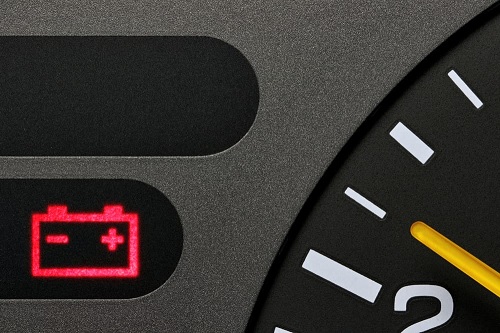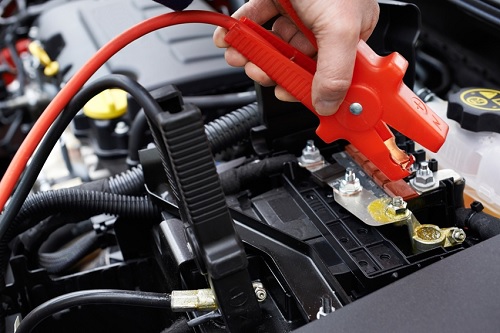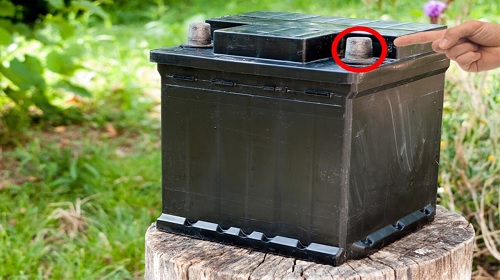Read the text below if you want to know what can cause a car battery won’t hold a charge! Turning on the ignition every morning as they leave for the day is a daily habit for many people. There is no such thing as a start-up delay with a good battery. However, if the automobile battery won’t keep a charge, starting the engine may appear to be a difficult process.
Have you ever been in a similar situation? The battery is a vital component of vehicles because it provides the energy required to keep them running. It assists with the operation of electrical components such as the key starter, radio, and the Car Lighting System.
If the battery appears to be damaged, the engine will not start when you “turn the key.” Your automobile battery may not be able to keep a charge overnight for a variety of reasons. I’d offer a few of these factors to make it easier for you to solve such a challenge.
What Are The Causes Of A Car Battery Won’t Hold A Charge
You can only get your automobile moving for that long-awaited ride if you have a fully charged battery. I’m sure you don’t want to be stranded in the middle of nowhere because your battery has died.
Regardless, this dreadful situation occurs, and there are numerous reasons why the vehicle’s battery will not maintain a charge. To tackle the problem of an uncharged battery, you must first understand the underlying causes.
Nonetheless, understanding how the system works appears to be critical. First and foremost, the battery supplies electricity to the starter and the vehicle’s main relay. The primary relay then supplies power to the vehicle’s computer and the gasoline pump.
Please keep in mind that the automobile battery is the only source of the first electric spark for the spark plugs. With them, the engine is started, and the alternator begins to generate energy, which keeps the battery charged.
If the alternator cannot produce this energy for charging the battery for an extended period, the battery will most likely die. Other reasons may drain the charge from the battery, in addition to the above factors that prohibit the battery from charging.
How Long Should A Car Battery Last Before It Needs To Be Recharged
Newer batteries are in better form to hold a charge longer, and as a result, they can last up to two weeks without needing to be charged. The following are some of the most prevalent causes of a battery that won’t keep a charge:
Battery That Has Seen Better Days
The vehicle’s battery is the primary source of electricity, and it can endure for a long time. Even yet, it appears that knowing how long batteries last and when to replace them is critical. If your automobile battery begins to deteriorate, you may notice that it will not charge when jumped.
As a result, if you detect the battery corroding, you should replace it immediately. Before you start thinking about “how to revive a car battery that won’t charge,” make sure you’re going to need a new battery. If you’re having trouble determining whether the battery is too old or appears to be dead, enlist the help of an auto service professional.
Alternator That Isn’t Working Properly
When the car’s alternator fails, the battery is less likely to be charged while the engine is running. The battery may become dead as a result of this, resulting in a replacement expense. The alternator is for sure the problem number one when it comes to car battery won’t hold a charge! As a result, resolving this problem before it causes further damage is critical. While the car is running, check the headlights to see whether the light dims gradually. If this is the case, you should inspect the alternator and correct any problems.
Fuse That Has Failed
A blown fuse or a malfunctioning fuse is another reason why the vehicle’s battery won’t hold a charge. The battery current declines when fuses are damaged, so it’s preferable to spot a problem as soon as possible. You can replace the blown fuse once you’ve pinpointed the source of the problem.
Alternator Belt Stretched
As the alternator belt on your car ages, it may begin to appear loose or strained. The alternator would not function properly if there was a problem like this. As a result, the car battery would not receive the necessary charge. As a result, it’s possible that your car battery is okay but won’t keep a charge.
Battery Drain Caused By Parasites
Because of a drained battery, your car won’t start, but what could be the source of the abrupt battery discharge? There are several reasons for this, one of which is leaving electrical equipment on for an extended period.
Maybe you forgot to turn off the trunk light, the radio, the clock, or even the alarm system in your car. In this case, you should use the ammeter to perform a battery test. Check the current drain by connecting the ammeter lead to the battery and its cable.
Many cars have a typical 25 milliamps or less drain, but if the drain surpasses 100 milliamps, it is a major electrical problem. Further diagnostics would be required, and you might wish to take the vehicle to a repair.
Corrosion That Is Excessive
Is there any rust on or around the battery? This problem can make your car battery won’t hold a charge for sure! The battery’s failure to keep a charge could be the result of this. Corrosion appears to act as a barrier, preventing the battery from receiving a full charge.
Although rust on the battery may indicate that it is beginning to age, this is not always the case. Please keep in mind that inadequate battery maintenance can lead to deterioration. As a result, you should look after your car’s battery and remove any corrosion that may be present.
Low Water Levels So Car Battery Won’t Hold Charge
Some automotive batteries require the use of water to plug gaps that allow for easier repair. If the vehicle won’t start, you may need to check the water level if you have one. If the water level looks to be low, top it up for the battery to work properly. However, some current automobile batteries lack these features.


















